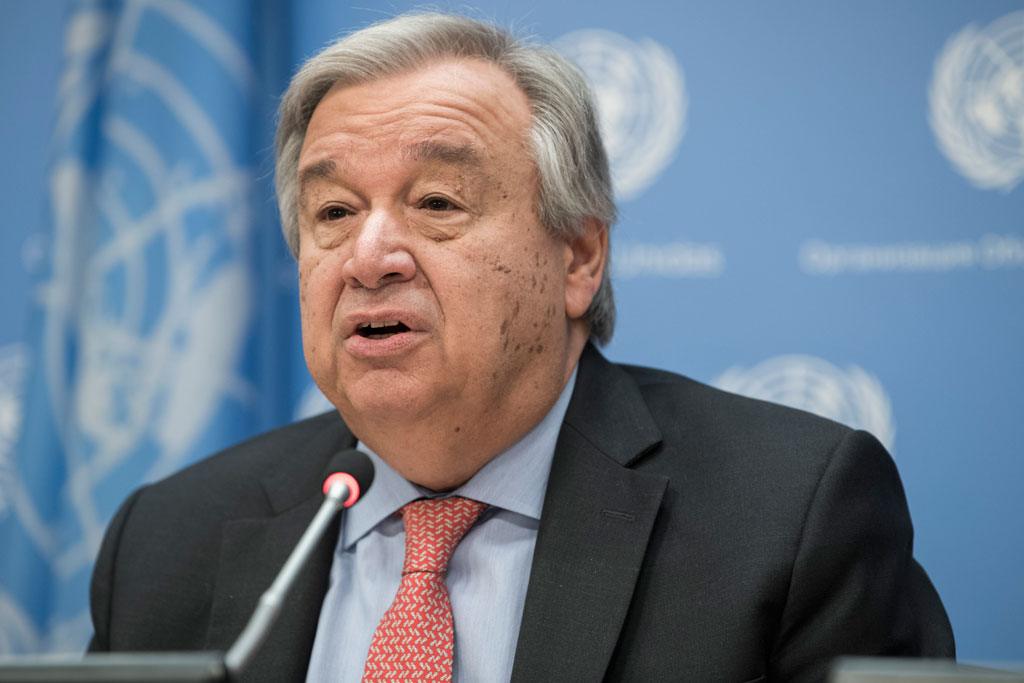New York - Saba:
UN Secretary-General António Guterres stressed that searching for food in the Gaza Strip should never amount to a death sentence.
Speaking at a press conference in New York on Friday, ahead of his trip to Seville on Saturday to attend the Fourth International Conference on Financing for Development—co-hosted by the UN and Spain—Guterres stated, "Israel, as the occupying power, is obligated under international law to approve and facilitate humanitarian relief."
He continued, "Families have been displaced repeatedly and are now confined to less than one-fifth of Gaza’s territory. Even these shrinking areas are under threat—bombs are falling on tents, on families, on those who have nowhere left to flee. People are being killed simply for trying to feed themselves and their families."
Guterres emphasized that Israel has been blocking "shelter materials and fuel for vital services for three months," forcing doctors to decide "who gets the last vial of medicine or the last ventilator." He added, "Even aid workers themselves are starving. This situation cannot be normalized."
The Secretary-General noted that a small shipment of medical supplies entered Gaza earlier this week—the first UN delivery in months—stressing that "this only underscores the enormity of the crisis."
He pointed out that the minimal aid reaching Gaza is insufficient, stating, "What Gaza needs now is a surge in humanitarian assistance. This trickle of aid must turn into a flood."
Guterres called for "concrete measures to ensure aid reaches all people, wherever they are, swiftly and at scale," warning that "any operation directing desperate civilians into military zones is inherently unsafe and is getting people killed."
He also stressed the need to resolve the humanitarian aid distribution crisis, noting, "There is no need to reinvent the wheel with risky schemes—the solution is already with us."
Guterres highlighted that the UN has a detailed plan grounded in humanitarian principles—humanity, integrity, neutrality, and independence. "We have the supplies and expertise," he said. "Our plan is guided by people’s needs, built on the trust of local communities, donors, and member states. It worked during the last ceasefire and must be allowed to function again."
The UN chief urged Israel to adhere to the UN Charter, allow humanitarian aid entry, and ensure access to people wherever they are.

| more of (International) |




